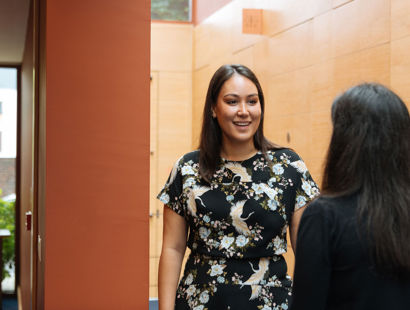Trainee supervision - how was it for me?
If my plan comes to fruition, the end of 2022 marked for me an important milestone – my last ever trainee moved on. As my current intention is to end my partnership role in Summer 2024, I don’t expect again to be directly responsible for a trainee.
Doing the maths, thus ends about 28 years of being a trainee supervisor. How was it for me? What have I learnt?
Starting to write this, my head flooded with thoughts, and faces. And then I stopped. I was writing on the basis of my own, one-sided perceptions of the trainee/supervisor relationship.
While that is not inherently wrong, it is not a reflection of the relationships I have tried to foster – they were/are a two-way thing. In truth, that is probably not how it was in my early supervision years, but the more experienced and older I became, the more the trainee/supervisor relationship became as beneficial to me as it was (I hope) to those who worked with me.
So, I asked a lot of my former trainees what they thought. I’ve done that periodically before, with some great insight provided. And so it proved again. Below, I have included excerpts of their responses, anonymised of course.
By about 1994, I was already charged with day to day supervision of trainees. Although there have been some gaps since, there is no doubt that I have shared a room with a lot of trainees, in many cases in their first seat with Russell-Cooke. Most have become successful lawyers, and quite a few are now partners either at Russell-Cooke or elsewhere.
That simple concept (sharing a room) probably most sums up my philosophy about trainee supervision. Some years ago, a senior partner observed that, in reality, there was not much in our work which was, within the confines of our room, so confidential it could not be discussed with or in front of colleagues. Some might wonder about that, but it is true. Obviously, very personal things like health or pay are entirely private, but such matters aside, most else is not. Also obviously, I am not talking here about any breach of our ethical duties of client confidentiality.
Anyone sharing a room with me would gain quite a lot of insight into how I did my work, whether with clients and contacts or with colleagues. They witnessed management decisions being made, business development in action and so on. They learnt that colleagues were able to wander in and discuss work, or more importantly, problems about work. They would see and hear how things were discussed and resolved, and so be able to adopt what they liked, or take a different approach if that worked better for them. Many of my trainees have remarked on how much they learnt this way, not just about the practice of law, but the business of it too.
I have been a partner for a long time. Clearly as a partner I have a leadership role. But it is only over the last decade or so that I have consciously thought about leadership and what it means, or could mean for me.
There are, of course, many types of leadership. It is not my intention here to discuss that in any depth, or at all. I don’t have some, single, defined concept of leadership I seek to embody. It will change depending on the circumstances and situations, and, I hope, adjust according to the people I am engaging with, to reflect their diversity and differing needs. Occasionally it has to be very direct and assertive, but many times it will take a different form.
My personal leadership philosophy is not capable of simple explanation. It is some amorphous mash up of influences from Thomas Erikson (“Surrounded by Idiots” (2019)) to Sun Tzu (“The Art of War” (ages ago)). In recent times, I have been following Simon Sinek quite closely.
In his podcast interview with Bob Chapman, an American business owner, leadership was equated with being a parent. As many of my recent trainees have been roughly the age of my own children, that has resonated perhaps more than it should have.
A difference though has been that my trainees have done me the courtesy of apparently listening to me from time to time! That parental idea has meant that, at times, my approach to the relationship has been influenced by my asking myself what experience at work I would wish for my bright, thoughtful adult children. But there is another angle to that parent/child angle: my children challenge me, my quirks and “traditions”, they educate me. I don’t always agree with them and they definitely don’t always agree with me. I can count with one finger the number of times one of my children has said “Dad’s right”. I have learnt to like that relationship, and it has fed into my trainee/supervisor relationship. Has it been positive?
Well, here is a selection of excerpts of recollections trainees have shared with me about our time together, covering a period of about seven-eight years:
“…in my first week you had a meeting with a client and I took a note. Before the meeting you asked me to prepare to answer two questions afterwards: what I thought you did well and what I thought didn’t work so well. I think this did two things in my first week of my training contract – it made me feel like you valued my opinion even as a first seat trainee and I think made having a partner as a supervisor less intimidating, but it also made me think about what I would do in a meeting and how I would communicate with a client rather than just thinking whatever I was observing was the only way to do something.”
“I appreciated that in the first week you took the time to find out my expectations and also told me what you thought would be good for me to experience and then we were able to reflect on this list throughout my seat.”
“Supervisors have to manage their own workload and a trainee and that is extremely time consuming, but those who manage to really put the time in I think get a lot more out of their trainee.”
“You had the feel of a ‘mentor’ rather than just a supervisor, with an approach to help me develop generally as a solicitor as well as within the team, which was particularly useful in my first seat.”
“The effort that you took to explain how the work I was doing fitted into the wider picture so that I came to appreciate the importance of it and had a greater understanding of the overall process. It wasn’t until I experienced the opposite in some seats that I realised the value of understanding this.”
“The sense that you took mentorship very seriously on a personal level and not just a professional duty. It continued long after I left the seat."
“Your sensitivity to the pressures and insecurities of being a trainee, for example leaving the room when you knew I had an important phone call to make that I was worried about. Those sorts of things were priceless.”
“Your encouragement for me to discover what kind of lawyer I am. I felt that honesty, integrity and hard work were very important to you but other than that you were respectful of different ways of handling things according to one’s own personality. That’s me reading between the lines, but it’s how you made me feel. It’s quite empowering when you are starting out in a professional career to know that you can be yourself.”
I would suggest that, on any basis, those are good recollections. Some are from recent trainees and some from colleagues who were with me a while back. While there are some similarities between them (and others I have not set out here), perhaps what they don’t directly show is how their experiences were/are the result of lessons I learned throughout my supervision career.
I suspect that when a brand new trainee arrives on their first day, they might feel a little apprehensive. That would be normal. What they may not have appreciated (in fact, I hope they didn’t) was I felt that way too. I’d wonder what they would be like as people, would I enjoy our time together?
What I learnt over the years is that being a trainee supervisor, especially for someone starting their first seat, was/is a privilege and honour – there is a significant opportunity to set the foundations for their whole career and obviously one wants to do well by them. Of course I would feel apprehensive too. What I would be sure of is, that whoever they were, I would learn from the experience.
I think that in recent times, many people have come to see me as a sort of mentor. Colleagues and others (young or not so young, junior or not so junior) have sought me out so that we can regularly chat about work, career, development, whatever they want.
If I am any good at that, it is mostly because of the trainees I have spent time with. I am very grateful to them.




